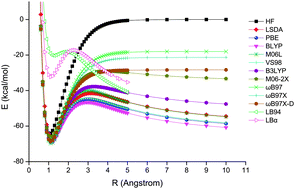Assessment of density functional methods with correct asymptotic behavior†
Abstract
Long-range corrected (

* Corresponding authors
a
Department of Physics, National Taiwan University, Taipei 10617, Taiwan
E-mail:
jdchai@phys.ntu.edu.tw
b Center for Theoretical Sciences and Center for Quantum Science and Engineering, National Taiwan University, Taipei 10617, Taiwan
Long-range corrected (

 Please wait while we load your content...
Something went wrong. Try again?
Please wait while we load your content...
Something went wrong. Try again?
C. Tsai, Y. Su, G. Li and J. Chai, Phys. Chem. Chem. Phys., 2013, 15, 8352 DOI: 10.1039/C3CP50441G
To request permission to reproduce material from this article, please go to the Copyright Clearance Center request page.
If you are an author contributing to an RSC publication, you do not need to request permission provided correct acknowledgement is given.
If you are the author of this article, you do not need to request permission to reproduce figures and diagrams provided correct acknowledgement is given. If you want to reproduce the whole article in a third-party publication (excluding your thesis/dissertation for which permission is not required) please go to the Copyright Clearance Center request page.
Read more about how to correctly acknowledge RSC content.
 Fetching data from CrossRef.
Fetching data from CrossRef.
This may take some time to load.
Loading related content
